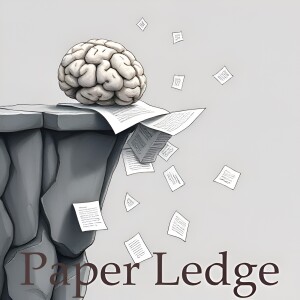

Computation and Language - SpeechLLMs for Large-scale Contextualized Zero-shot Slot Filling
Hey PaperLedge crew, Ernis here, ready to dive into some fascinating research! Today, we're tackling a paper about making our voice assistants and speech-based apps smarter. Think of it like this: imagine trying to order a pizza over the phone, but the person on the other end keeps misunderstanding you. Frustrating, right?
This paper focuses on something called "slot filling," which is a key part of how computers understand what we say. Basically, when you ask Siri or Alexa to "Set an alarm for 7 AM," the system needs to fill in the "slot" for time with "7 AM." That's slot filling in action!
Traditionally, this has been done in stages: first, the computer recognizes your speech (speech recognition), then it tries to understand what you meant (natural language understanding). It's like having one person transcribe your pizza order, and then another person tries to figure out what toppings you want.
But now, there's a new kid on the block: speech-based large language models (speechLLMs). Think of these as super-smart AI brains that combine speech and text understanding into one. Imagine a single, highly trained pizza order taker who can not only understand what you're saying but also instantly anticipate your favorite toppings and even suggest a special deal!
This paper explores how well these new speechLLMs can handle slot filling. The researchers basically tried to figure out the absolute best performance possible (an "empirical upper bound") and then looked at where the current models fall short.
So, what did they find? Well, there are gaps in performance, especially when it comes to:
- Accuracy: Sometimes, the models still get things wrong.
- Robustness: They might struggle with accents, background noise, or even just different ways of phrasing the same request.
- Generalization: Can they understand new types of requests they haven't been trained on before? Think about ordering a pizza with a topping they've never heard of!
The good news is the researchers didn't just point out the problems. They also suggested improvements, focusing on:
- Better training data: Giving the models more examples to learn from.
- Improved architecture: Tweaking the design of the AI brain itself.
- Smarter training strategies: Finding better ways to teach the models.
And guess what? Each of these measures made a significant difference! The models got better at understanding speech, filling those slots, and ultimately, giving us a smoother, more intuitive experience.
Why does this matter?
- For developers: This research provides practical guidance on how to build better voice assistants and speech-based applications.
- For users: It means more accurate and reliable speech recognition, leading to less frustration and a more seamless experience.
- For researchers: It pushes the boundaries of what's possible with speech understanding and opens up new avenues for exploration.
But here are a couple of things that crossed my mind reading this. What do you think, learning crew?
- If these models are getting so good at anticipating our needs, how do we ensure they're not also manipulating us or making assumptions about us that are inaccurate or even biased?
- And as speechLLMs become more powerful, how do we balance the benefits of increased convenience and efficiency with the potential privacy risks associated with constantly being "listened to"?
That's all for today's PaperLedge deep dive. I hope you found it insightful! Until next time, keep learning!
Credit to Paper authors: Kadri Hacioglu, Manjunath K E, Andreas Stolcke
More Episodes
All Episodes>>Create Your Podcast In Minutes
- Full-featured podcast site
- Unlimited storage and bandwidth
- Comprehensive podcast stats
- Distribute to Apple Podcasts, Spotify, and more
- Make money with your podcast












